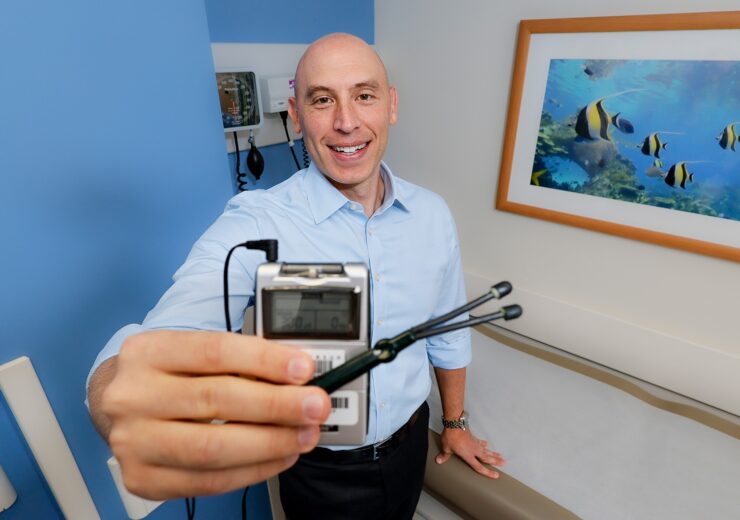The results from the proof-of-concept trial showed that the non-invasive, non-pharmacological ta-VNS or stimulating in the ear, lowered inflammation in more than 64% of paediatric patients suffering with IBD

Feinstein Institutes has published positive results from its vagus nerve stimulation clinical trial. (Credit: Business Wire/Feinstein Institutes)
A group of bioelectronic medicine researchers at The Feinstein Institutes for Medical Research and Cohen Children’s Medical Center in the US have published data showing reduced inflammation using transcutaneous auricular vagus nerve stimulation (ta-VNS) in children with inflammatory bowel disease (IBD).
The results from the proof-of-concept clinical trial revealed that the non-invasive, non-pharmacological ta-VNS or stimulating in the ear, substantially lowered inflammation in more than 64% of paediatric patients suffering from IBD.
The team used a commercially available transcutaneous electrical nerve stimulator (TENS) unit (TENS 7000) and a sensor probe for the study.
Cohen Children’s Medical Center liver disease & nutrition, gastroenterology division Pediatric Inflammatory Bowel Disease Center co-director Benjamin Sahn said: “Currently approved biological medications for children with IBD have the potential for side effects and may not help fully alleviate symptoms or lead to disease healing.
“These proof-of-concept study results show that non-invasive vagus nerve stimulation should be studied further and considered an alternative or additive to pharmacologic therapy.”
In the trial which was led by Sahn, 22 IBD patients in the age group of 10-21 with elevated fecal calprotectin (FC) were randomised into two groups.
Some patients received once-daily vagus nerve stimulation with ta-VNS in their left external ear whereas some individuals received once-daily sham stimulation.
All trial subjects were eventually changed to receiving ta-VNS twice daily for the last 12 weeks.
At the end of the study, 33% of patients with ulcerative colitis symptoms and 50% of participants with Crohn’s disease symptoms were in remission.
The patients with ulcerative colitis experienced improved FC and symptoms sooner compared to those with Crohn’s disease.
Feinstein Institutes president and CEO Kevin Tracey said: “This study adds to the growing evidence that the vagus nerve can suppress inflammation in patients.
“It will be interesting in the future to further explore the mechanisms of vagus nerve stimulation in other clinical trials.”
